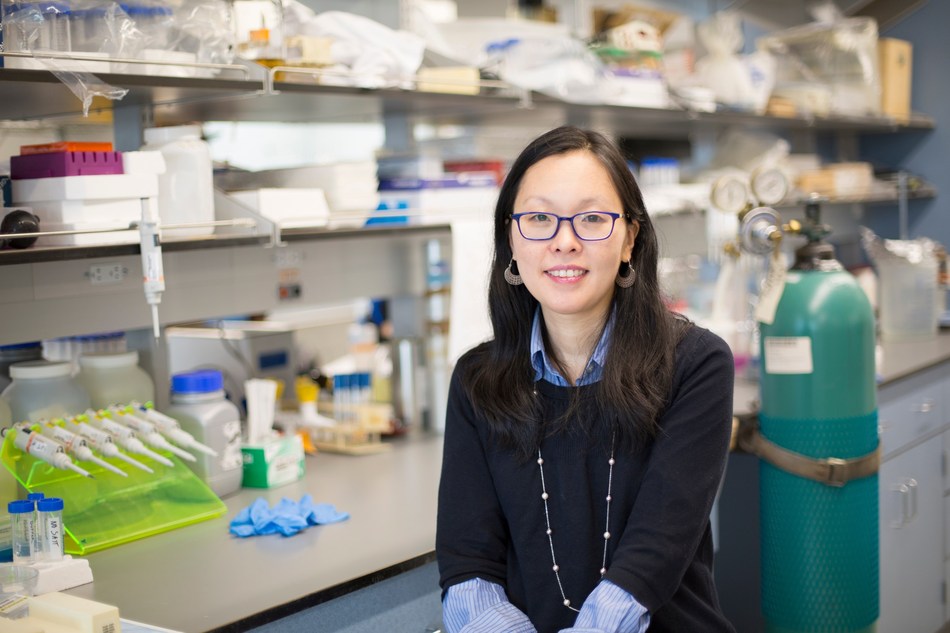
Brooklyn, N.Y. — The American Institute for Medical and Biological Engineering (AIMBE)has inducted Jin Kim Montclare, a professor of chemical and Biomolecular Engineering at the NYU Tandon School of Engineering, to its College of Fellows.
Election to the AIMBE College of Fellows is among the highest professional distinctions accorded to a medical and biological engineer. The College of Fellows is comprised of the top two percent of medical and biological engineers. College membership honors those who have made outstanding contributions to engineering and medicine research, practice, or education and to “the pioneering of new and developing fields of technology, making major advancements in traditional fields of medical and biological engineering, or developing/implementing innovative approaches to bioengineering education.”
Among current AIMBE Fellows are two Nobel Prize laureates, 17 recipients of the Presidential Medal of Science and/or Technology and Innovation. The institute reports 158 were also inducted to the National Academy of Engineering, 72 to the National Academy of Medicine, and 31 to the National Academy of Sciences.
In addition to her role as NYU Tandon professor and head of the Montclare Lab for Protein Engineering and Molecular Design, Montclare serves as the director of the school’s Convergence for Innovation and Entrepreneurship Institute and associate director for technology advancement at New York University’s Materials Research Science and Engineering Center (MRSEC). She was nominated, reviewed, and elected by peers and members of the College of Fellows for her “outstanding contributions to biomaterials and biocatalyst design via synthetic biology and protein engineering.”
Well known for her development of protein-lipid macromolecule systems that can deliver genes, nanoparticles, and drugs for the potential treatment of multi-drug resistant cancer cells, diabetes, and other conditions requiring a variety of therapeutic approaches, Montclare recently garnered attention for her design of nanoscale protein micelles capable of both delivering chemotherapeutic drugs and of being tracked by magnetic resonance imaging (MRI), thereby non-invasively monitoring therapeutic progress and reducing the need for surgical intervention.
A formal induction ceremony was held during the AIMBE Annual Meeting at the National Academy of Sciences in Washington, D.C., on March 25, 2019.
“I am delighted that the American Institute for Medical and Biological Engineering has recognized Jin Kim Montclare for her important research,” said NYU Tandon Dean Jelena Kovačević. “In working to improve therapeutic outcomes for countless patients, she stands as a stellar example of all that we aim to achieve here at NYU Tandon.”


